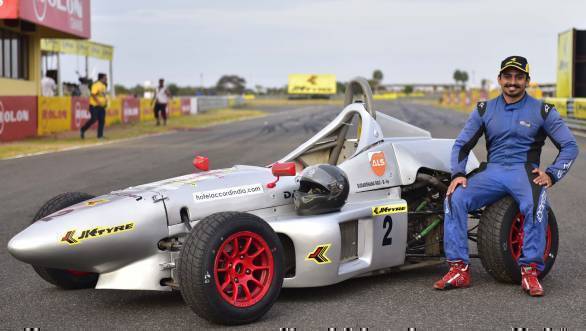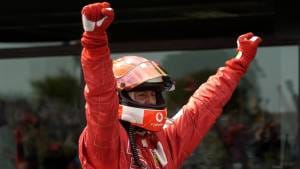The racers who once were...
Jochen Rindt, if he'd been alive today, would have just turned 75 years old. A ripe old age for a racecar driver to reach, especially when you consider the risks involved in motorsport. Tragically enough, like so many racers of his generation, Rindt didn't make it past the age of 28, which I've just realised is a year younger than I am now. He died in a crash during practice at Monza.
At the time of his death, Rindt had won five races of the ten that were held thus far in the 1970 season of F1, blazing his way to victory in that iconic gold-and-orange-liveried Gold Leaf Lotus 72. He had such a strong lead in the driver's championship that later that year he became Formula 1's only posthumous world champion. It's a feat that is remarkable and horrific all at once. And one that I hope never occurs again. Every now and then we wake up to the harsh reality of just how cruel the sport we love can be. Indeed, motorsport has a way of stripping away the mantles of 'the greatest ever', 'living legend', 'hero' and so many other epithets that we bestow upon racers, and exposing them for what, beneath the surface, we all are. Mortals. And this reminder of mortality, when connected with racing, is never ever pleasant.
There's something, then, to be said for racers of that era who make it into retirement relatively unscathed.
I remember thinking about this at the Goodwood Festival of Speed last year. If you've visited Goodwood you'll know, as I do now, that everything they say about English weather is especially true in Lord March's estate. The grounds had gotten very muddy, my shoes were soaked through, and having just been caught out in the downpour, I looked rather like a miserable scraggly cat. "Bet you wish you'd brought your galoshes, dontcha?" the gentleman next to me chuckled catching me staring at his gumboots. No sooner had I rather shamefully acknowledged exactly this, than the whole lot of us who were standing in the area were shooed out of the way by a pack of marshals. They needed room because they were wheeling back into the pitlane, after a run out on the hillclimb, a bright red Lola-Chevrolet T70 Spyder. Still strapped into the car, white and blue helmet on his head, was John Surtees.
All of 82 years old, Surtees didn't look a bit tired. He was just a little occupied, making sure that the car was all right, turning the steering wheel this way and that to help the marshals. I'd have loved to have managed an interview with him, but at Goodwood most drivers have packed schedules, with multiple runs up and down the hill-climb course, and are very busy indeed. Eventually, I got swept along with the crowd to another part of the track altogether. Over the course of the next two days though, I'd see Surtees a couple of times, more often than not either walking towards the car he was about to drive, or walking back to the Driver's Club after his run. I did also manage to watch him driving the course in that T70 Spyder. There was certainly nothing octogenarian about the way the man drove.
In March this year, at the age of 83, John Surtees passed away. When he died, it was surrounded by his family, which is not a bad way for someone who worked in motorsport for as long as he did, to have passed on. There was an outpouring of affection from the motorsport community for Surtees. People who he'd worked with, other, often younger, racers he'd gone up to and offered words of friendly advice, even people he'd competed against - they had nothing but good things to say about him. All acknowledging that he had been a fierce competitor on track and a thorough gentleman off track.
 Ashwin Sundar (June 27, 1989 - March 18, 2017)
Ashwin Sundar (June 27, 1989 - March 18, 2017)
It was a similar outpouring of affection that we witnessed in India recently. Ashwin Sundar, who had multiple national racing titles to his name, passed away in a road accident in March this year. Amidst the terrifying reportage of the crash that was spread across various news channels, there was a sense of deep loss that filtered through from within the motorsport community. Everyone who posted a tribute message to Sundar acknowledged one fact. That while he had been a terribly tough rival to spar with on track, he'd been a genuinely nice guy off track. He was always eager to help someone figure out how to go faster, how to get their racing lines right, or how to set up their car. Years ago I even remember seeing a message on a social media platform directed at Sundar during a race weekend. It said something to the effect of "Can't get through on your phone. Call back. Need help with the car setup". That's just how affable a chap he'd been. It was a reminder of camaraderie amongst motorsport competitors. And a heartening one at that.
When I first started writing about motorsport, and Indian motorsport in particular, every single time I delved into the history of the sport, I'd chance upon one name. That of Sundaram Karivardhan. No conversation with a competitor from the days of Sholavaram was complete without Kari's name surfacing. And the stories of camaraderie were so very many. Whether it was supplying a rival team with a tool they were missing, or whether it was pulling the racing slicks off his own car and handing them over to someone else who he knew would be able to go faster with the right set of tyres, Kari, I'm told, did everything he could to help. A whole generation of racers benefited from having him around.
The names that have made it to this page this month, are of people who were terrific racers. But more importantly, from what I've read and what I've been told, these people were, above all else, terrific human beings. That, when you think about it, really is the more significant achievement. And that is worth remembering.














